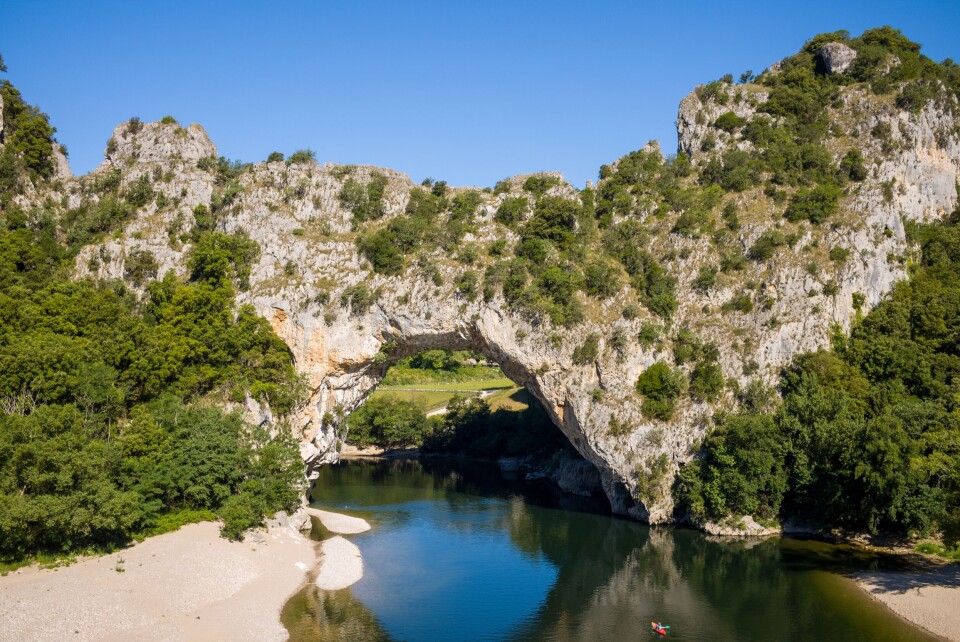-
More communes in France distribute Asian hornet traps
Residents are increasingly receiving help, with now the best time to capture the queens
-
Drinking tap water restricted for children in south-west France communes
Haute Garonne prefecture says the measure is precautionary and due to high chlorate levels
-
French ski resorts report excellent Christmas despite less snow than last year
Bookings are up and non-snow related activities are also on the rise
Eco-news France: one hour Vueling flight, €4m tourism fund, picnic ban
We share the nine locations to receive sustainable tourism funding and why you cannot munch a sandwich on this sunny seafront

Funding will assist green switch
Nine locations in France have been selected to share government funding totalling €4million, in order to adapt and improve their sustainable tourism (tourisme durable) offering.
At the end of 2022, an invitation to submit applications was sent out as part of the Destination France Plan launched by the government, to make France the leading destination for sustainable tourism.
The ministry has targeted coastal, mid-mountain and rural sites, all due to their sensitivity to climate change, their tourist appeal with strong seasonal shifts and their ‘recurring difficulty in mobilising dedicated engineering’.
The government’s ecological transition website states that the selected projects meet the challenges of sustainable tourism development, including:
-
diversification of ‘the tourism offer’
-
development of low-carbon mobility
-
sustainable management of resources
-
conciliation between tourist frequentation and the protection of natural areas
-
integration of tourist activities in their territory
-
in connection with the resident populations, consideration of the fluctuating nature of its tourist real estate
-
raising environmental awareness and education
Read also: Manche’s colourful cabins: Good for Instagram but bad for the beach?
The nine successful applicants will receive the funding from the DGALN (General Directorate for Housing and Nature Development), with budgets allocated for one of three types of help:
the Territorial Workshop, which will provide engineering support ‘for the construction of a project or a territorial strategy’;
the Partnership Development Project, a ‘contractual agreement between the State, the municipalities and local partners (public and/or private) to accompany the realisation of one or more complex development operations intended to meet the objectives of sustainable development of the territories’;
the Eco-Neighborhood approach, which ‘promotes new ways of designing, building and managing the city sustainably by integrating the issues and principles of the city and sustainable territories’.
Among the more well known places from the winning bidders are Gorges de l’Ardèche (Ardèche) and Vallée d’Ossau (Pyrénées-Atlantiques).
Others include Commune de Pont-de-l’Arche (Eure), communes in Maremne Adour Côte-Sud (Landes) and Commune de Bonifacio (Corsica).
Seafront snackers risk fine
Anyone considering munching on a baguette whilst on an 800-metre stretch of the Flots Bleus seafront promenade at Saint-Laurent-du-Var (Alpes-Maritimes) runs the risk of receiving a €35 fine.
Picnics join electric scooters on the banned list for the shaded seafront.
The decree imposed by mayor Joseph Segura is in response to what he calls “a minority that doesn’t show respect, that throws its rubbish on the promenade.”
He confirmed, however, that eating on the beach is still permitted.
Toulouse-Barcelona flight dismay
A new thrice-weekly summer flight route between Toulouse (Haute-Garonne) and Barcelona in Spain, which will last just one hour and cover 250kms, has caused consternation amongst environmentalists.
The Vueling service, which starts in July, will cost as little as €50 return, and comes after the direct train route between the two cities was halted during the Covid pandemic because it was not profitable enough.
Previously, the SNCF ran a three-hour route in partnership with the Spanish company Renfe, but now train travellers must change at Narbonne, which adds 50 minutes to the journey.
Read also: Is France really respecting the ban on short domestic flights?
“We should have done what was necessary to make the train an interesting alternative,” says Yannick Saleman, of environmental think tank, Shift Project.
Related articles
What is in the €2bn plan to promote cycling and bike lanes in France?
Practical tips for buying rainwater collector as sales surge in France
Old electric French post office bikes get ‘up-cycled’ for resale
























